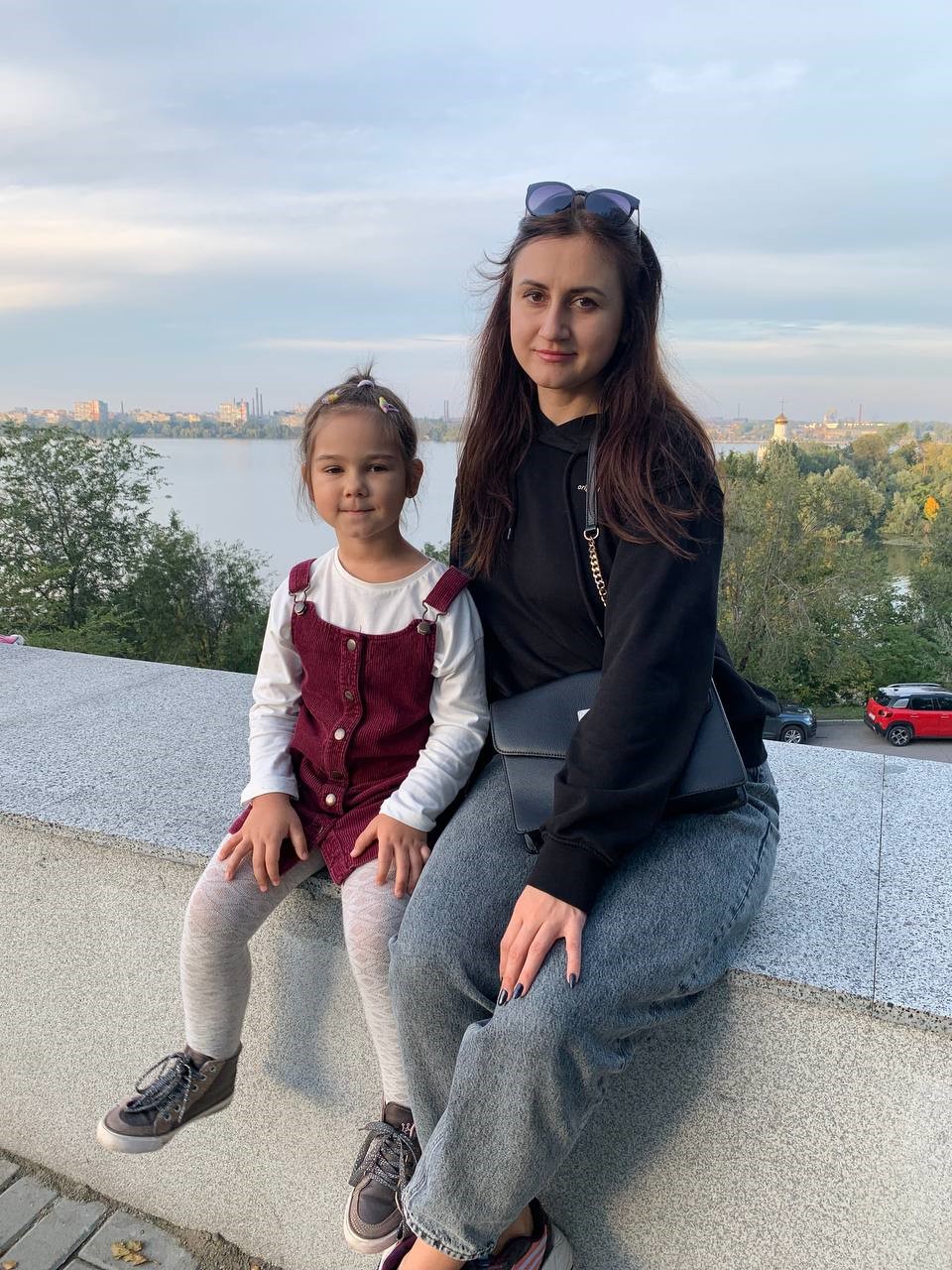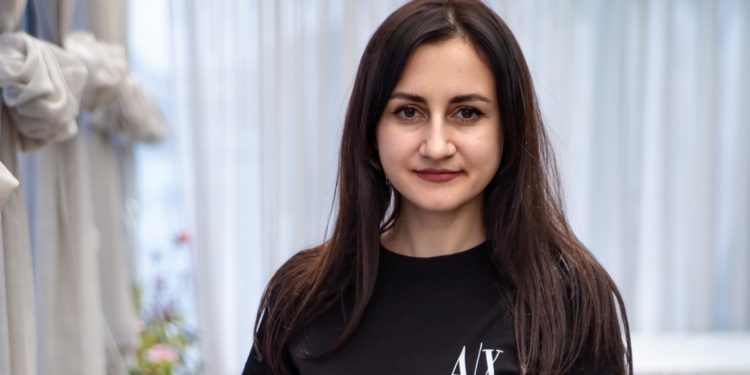On February 24, 2022, Yana Velychko, the editor-in-chief of the regional newspaper called Kreminshchyna, like many other Ukrainians, saw a “terrible dream” come true. She has experienced shelling, hiding in basements, searching for food and water, evacuating far from home, and promising her daughter to return home.
Here is Yana Velychko’s story, especially for the National Union of Journalists of Ukraine (NUJU).
“I couldn’t fully believe that a full-scale war would begin.”
Yana lived less than 100 km from the front for eight years. In 2014, her small town of Kreminna, Luhansk Region, was spared by the war, which, unfortunately, did not happen in February 2022.
“We were told a lot about it, we were warned, so I packed a minimal “emergency bag.” There were elementary things: documents, clothes, medicines, that is, things that you can quickly take and go. I did not believe until the very last moment that a full-scale war would begin. On February 23, our newspaper worked in the usual mode: we calmly prepared files for printing, sent them to the printing house in Kharkiv, and the next morning we woke up to explosions and realized that we would definitely not go to work today,” the journalist shares her memories.
On the same morning, a large-scale evacuation began in the region. Still, Yana and her colleagues decided to stay home and run the newspaper’s website remotely, despite active fighting on the city’s outskirts.
“Through the Facebook page, together with the military administration of the city, we communicated useful information to the population: we wrote about pharmacies that continued to work, about the availability of medicines, about the operating modes of grocery stores, about the goods that are available there. Then for some time, there were problems with delivering goods to Kreminna, but the city tried to hold on. Humanitarian aid was provided, and our electricians heroically repaired the damage caused by enemy shelling. Communal services also worked until the last moment, trying to keep the city clean,” Yana describes the events at the beginning of the war.

“Most of the Kreminna citizens have left the city and are now in different parts of Ukraine; they need to be helped somehow.”
Overnight into March 7, the journalist and her little daughter woke up from a loud explosion. The first enemy shell fell in the middle of the city and forced Yana to save her child and herself.
“We immediately packed our things and left. It was terrifying. Since we did not understand the scale of the offensive, we decided to go closer to the western border,” the journalist continues her story. “It was probably the most challenging thing to explain to my child that we were going away for a week or two to rest and come back soon because it was clear that it might not be possible to return.
The longing for home turned out to be stronger than the fear of shelling. Therefore, Yana and her child stayed in Lviv for only two weeks, then returned a little closer to their native Luhansk Region. So, they settled in Dnipro. And Yana started actively volunteering.

“The Kreminna City Military Administration announced that coordinators are needed in different regions of the country. Most of the citizens of Kreminna have left the city and are now in different parts of Ukraine; they need to be helped somehow. At that time, I had already been in Dnipro for several weeks and had a good orientation in the location of aid stations. I knew where to get humanitarian or informational support, so I immediately responded. Our channel is called Kreminna Residents of Dnipro [Kreminiany Dnipra]; it contains the addresses of humanitarian headquarters, charitable foundations, useful contacts of lawyers, doctors, etc. And now we are still closely cooperating with the Humanitarian Hub. There are a lot of subscribers, and they are growing every day. By the way, these are people from the Kreminna Community and the entire Luhansk Region. So, our field of activity is quite wide,” Yana Velychko says.

“We will come back. And the first thing I would like to do is restore our newspaper’s activity.”
Later, the editor resumed her work on the website of the newspaper Kreminshchyna. Unfortunately, assembling the staff in full was impossible, as part of the workers remained in the occupation.
“It so happened that only I work on the site, but if it is financially possible, I also manage to attract other journalists. Since the beginning of the full-scale invasion, we have received help several times from the Ukrainian Association of Media Business and the NUJU, thanks to which we can work more stably on the website and also maintain a page on the Facebook network,” says Yana and does not lose hope that she will return home and repair the editorial office and will resume publication of the newspaper.

“We will definitely come back. And the first thing I would like to do is resume our newspaper’s activities because it will soon be 80 years old, and I don’t want its history to end like this; the newspaper must live! So, of course, we will go home as soon as possible, we are looking forward to that moment. Home is home, no matter how good it is in another city. And most importantly, “we promised this to our child,” Yana Velychko concludes her story.
JOURNALISTS ARE IMPORTANT. Stories Of Life And Work In War Conditions is a cycle of materials prepared by the NUJU team with the support of the Swedish human rights organization Civil Rights Defenders.

 THE NATIONAL UNION OF
JOURNALISTS OF UKRAINE
THE NATIONAL UNION OF
JOURNALISTS OF UKRAINE
















Discussion about this post